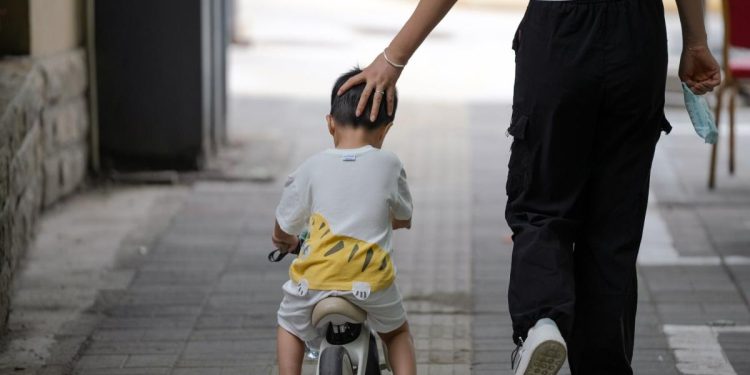(Bloomberg) — China’s population declined for a third straight year in 2024, although births rose slightly, underscoring a persistent long-term risk to the economy.
Most read on Bloomberg
The total number of people in China fell by more than 1.39 million to 1.408 billion last year, according to data released by the National Bureau of Statistics on Friday.
Around 9.54 million babies were born, 520,000 more than the previous year. This bump could be partly due to the belief that the year of the dragon in the Chinese zodiac is good luck for having children. However, this is the second lowest number of births since the founding of the People’s Republic of China in 1949.
“Many couples who delayed pregnancy during the three years of the Covid-19 pandemic chose to have babies in 2024 – this is the main cause of the rise,” said He Yafu, an independent demographer. “But I estimate that the number of newborns will decrease in 2025.”
For much of the world, China has long been the most populous country, but decades of restrictive family planning policies, rising child care costs and changing social norms have dramatically slowed its rate of birth rate. The number of newborns has been in steady decline since the 1960s, except for a brief rise in 2016, when the government relaxed its one-child policy.
The latest population decline widens the gap between China and India, which overtook it as the most populous country in 2023. The South Asian country is now approaching 1.45 billion people, according to United Nations estimates.
Bloomberg Intelligence predicts that China’s population will shrink to 1.36 billion by 2035, a level not seen since 2012, but that could be delayed if couples could be persuaded to have more children. In October, authorities pledged to better support families with multiple children, including help with housing, health care and employment.
China’s demographic challenges could ultimately harm the country’s economic prospects, as a shrinking workforce puts a strain on growth. Additionally, a growing elderly population would put increased pressure on the underfunded retirement system.
Last year, China announced it would gradually raise the retirement age for the first time since 1978, despite public discontent over the move.
–With help from James Mayger.


